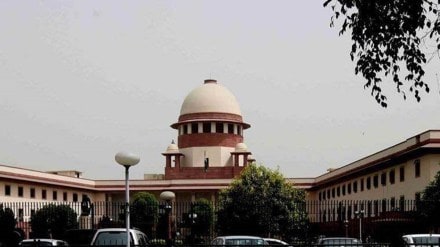The Supreme Court on Tuesday said that it would list two petitions on January 6 seeking to transfer to the apex court pleas pending at the Delhi and Kerala High Courts seeking legal recognition to same-sex marriage, reported Live Law.
The transfer petitions were mentioned by senior advocates Menaka Guruswamy and Karuna Nundy before a bench comprising Chief Justice of India DY Chandrachud and Justice PS Narasimha.
Advocate Karuna Nundy told the bench, “This is a matter that concerns same-sex and queer marriage. There are similar matters pending in the Delhi and Kerala High Courts. Hence this transfer petition.”
The CJI then said that the bench would list the transfer petitions along with the main issue on January 6.
SC takes note of pleas by two gay couples
On November 25, the apex court had taken note of two pleas by two gay couples – Supriyo Chakraborty and Abhay Dang, and Parth Phiroze Mehrotra and Uday Raj – who urged that their marriage be registered under the Special Marriage Act.
Touted as the ‘first’ wedding of gay men in Telangana, Supriyo and Abhay exchanged vows in Telangana’s Hyderabad in December 2021 making their nearly decade-long relationship official.
Meanwhile, Parth and Uday have been in a relationship for 17 years. They say that they are raising two children together, but since their relationship has no legal status, it has resulted in a situation where both petitioners cannot have a legal relationship with their children.
The two pleas seek a direction for extending the right to marry a person of one’s choice to LGBTQ (lesbian, gay, bisexual, and transgender and queer) people as part of their fundamental right.
Another petition has been filed by a couple, one an Indian and another a citizen of USA, who married and registered it in the US in 2014, and now seek that their marriage is registered under the Foreign Marriage Act, 1969.
Section 377 struck down in 2018
In a landmark judgment in Navtej Singh Johar vs Union of India case, a five-judge Constitution bench of the Supreme Court on September 6, 2018, struck down those provisions of the colonial-era statute (Section 377 of the Indian Penal Code, 1860), that criminalised private and consensual same-sex activity between two adults.
Section 377 was struck down on grounds that it violated the constitutional right to equality and dignity.
